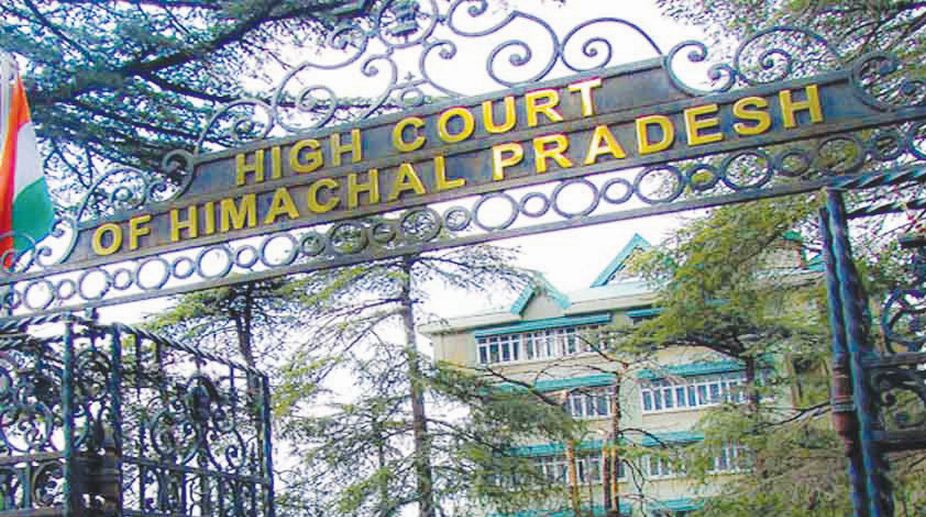The Himachal Pradesh High Court has granted bail to a Nigerian man who was arrested for selling Heroin (diacetyl morphine) while directing the trial court to expedite the trial. (Denial Koffi vs State of HP)
“Every visitor to our country comes for a specific purpose and for a limited time. However, if during the period of her stay, she gets arraigned as an accused in a criminal case, then she gets stuck up here. It may be traumatic to her, and to her education, family, friends, business, and a number of things, which an ordinary human being cannot even imagine. The answer lies in the speedy disposal of cases of foreign nationals, whether they are in custody or on bail,” said the Single-Judge Bench of Justice Anoop Chitkara.
The Court was hearing the application for bail filed by a Nigerian Passport holder, who was caught with 20 gm Heroin (diacetyl morphine) and sought bail on ground that the quantity of contraband allegedly seized was intermediate quantity and did not restrict bail. Because the quantity was greater than 250 gm diacetyl morphine, it falls in the category of the commercial quantity; hence the restrictions for bail imposed in Section 37 of the NDPS Act, do not apply to his case.
A Bench, while releasing an undertrial prisoner, without commenting on the case’s merits, and given the investigation stage, said that the period of incarceration already undergone, and the circumstances peculiar to this case, the petitioner makes a case for release on bail.
The Court has perused a series of Judgment passed by the Supreme Court, which had held that in intermediate quantity, the rigours of the provision of Section 37 of the NDPS Act may not apply.
The High Court noted, “In Sami Ullaha v Superintendent Narcotic Control Bureau, (2008) 16 SCC 471, the Supreme Court holds that in intermediate quantity, the rigors of the provisions of Section 37 may not be justified.
“In Sunny Kapoor vs State of HP, this Court observed that when the quantity is less than commercial, the rigors of Section 37 of the NDPS Act will not attract, and factors become similar to bail petitions under regular statutes. Thus, when the maximum sentence cannot exceed 10 years, and the accused is yet to be proved guilty, the grant of bail is normal, unless the Prosecution points towards the exceptional circumstances, negating the bail.
“In LachhmanDass vs Resham Chand Kaler, (2018) 3 SCC 187, (Para 10), the apex court held that the law under Section 439 CrPC is very clear and in the eye of the law every accused is the same, irrespective of their nationality,” it added.
The Counsel for the petitioner contended that incarceration before the proof of guilt would cause grave injustice to the petitioner and family.
Whereas on the other hand, the Additional Advocate General, on behalf of the state, said that the accused is a proven habitual offender, and given his past conduct; he is likely to repeat the offence.
He further insisted that if the Court was inclined to grant bail, then such a bond must be subject to very stringent conditions. He further submitted that a few Foreign Nationals, while in India, deal in substance trade.
“The solution to this lies not in denying bail. It lies in verifying the antecedents of these types of suspects, before approving or granting Visa, and once accused in substance abuse, then revoking the Visa. Synergy of law with technology is the next big thing,” the Court said.
“In return for the protection from incarceration, the Court believes that the accused shall also reciprocate through desirable behaviour,” it added.
The Court has granted bail, subject to her furnishing a personal bond of Rs 10,000 and two sureties of Rs 25,000 each, to the satisfaction of the Judicial Magistrate having the jurisdiction over the Police Station conducting the investigation, and in case of non-availability, any Ilaqa Magistrate.
“In the alternative, the petitioner may furnish a personal bond of Rs 10,000 and fixed deposit(s) for Rs 10,000, made in favour of Chief Judicial Magistrate of the concerned district,” it said.
The Court has also directed him to deposit his passport, if not already seized by the Police. It also directed him to procure a smartphone, and inform its IMEI number and other details to the SHO/IO of the Police station within 30 days of his release.
It said, “He shall keep the phone location/GPS always on the ‘ON’ mode. Before replacing his mobile phone, he shall produce the existing phone to the SHO/I.O. of the police station and give details of the new phone. Whenever the Investigating officer asks him to share his location, then he shall immediately do so. He shall also not clear the WhatsApp chats and calls without producing the phone before the concerned SHO/IO.”
The Court added that if during the trial’s pendency, the petitioner repeats or commits any offense, where the sentence prescribed is more than seven years or violates any condition as stipulated in this order, it shall always be permissible to the respondent to apply for cancellation of this bail.
Source: ILNS


